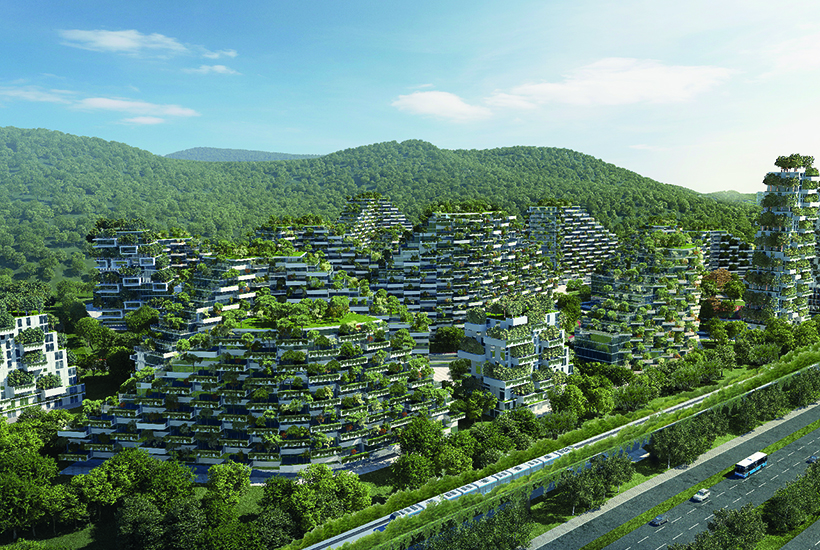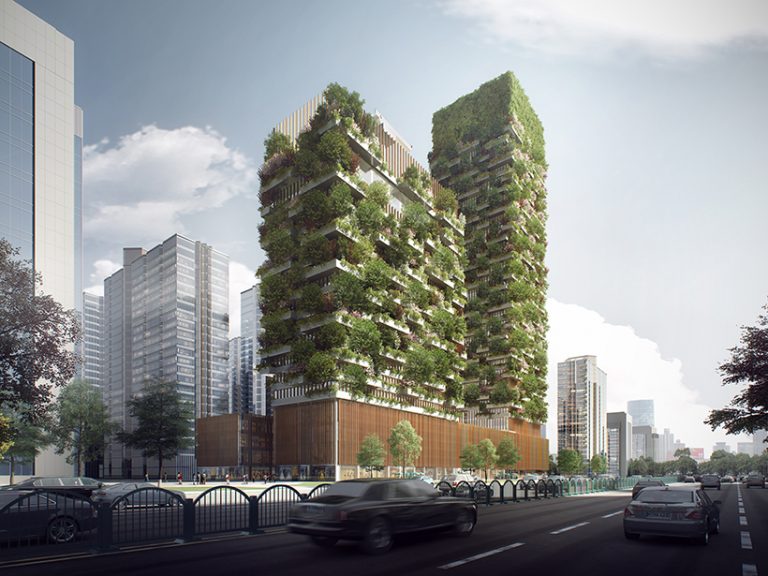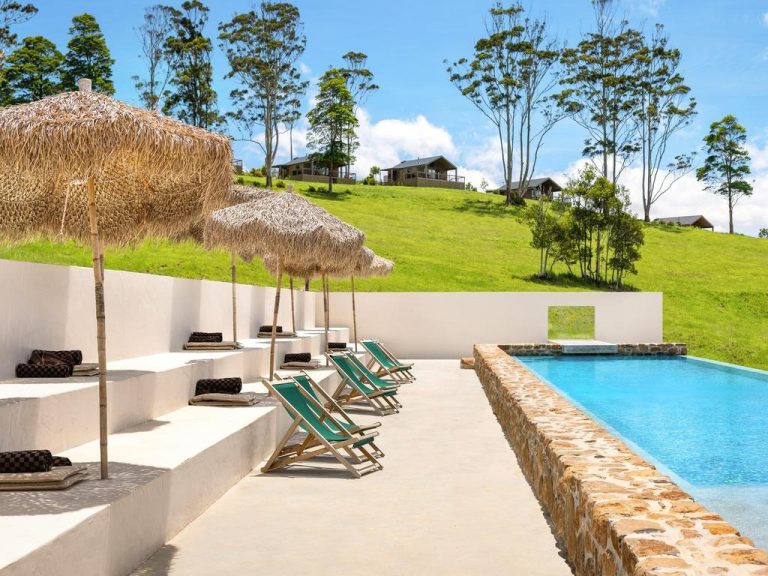Behold China’s new ‘Forest City’

We’ve seen architects making bold environmental statements in recent years, with buildings covered in trees and with greenery built into their designs.
Now China is going one step further, with an entire city to be built with trees and plants wrapped around every single building.
Offices, hotels, hospitals, houses and schools at the Liuzhou Forest City will be cloaked in a living forest, in an enormous project that will eventually be the home and workplace of 30,000 people.
Hyatt Hotel: Is it a building or a forest?
When completed, it’s predicted that the city’s natural elements will absorb around 10,000 tonnes of carbon dioxide and 57 tonnes of pollutants each year, while also producing about 900 tonnes of oxygen.

Hospitals, schools, homes, offices and other commercial buildings will be covered in trees.
Designed by Milan’s Stefano Boeri Architects, the city will be built on 175ha of land in the mountains along the Liujiang River, and will be connected to Liuzhou by a fast rail line.
In a statement the company – which is behind other forest-style commercial buildings, including a new 247-r0om Hyatt Hotel in Nanjing – says the city will have 40,000 trees and 1 million plants, including those on its buildings.

The city will be connected to nearby Liuzhou via a fast rail line.
More than 100 species will be included in the city’s design. Incredibly, the entire project is slated to be finished by 2020.
In a statement, the designers say the project is part of a push towards self-sufficient cities that offset their own environmental footprint.

The ‘Forest City’ will be home to around 30,000 Chinese.
“Liuzhou Forest City will have all the characteristics of an energy self-sufficient urban establishment: geothermal energy for interior air conditioning and solar panels over the roofs for collecting renewable energy,” they say.
“The diffusion of plants, not only in the parks and gardens or along the streets, but also over building facades, will allow the energy self-sufficient city to contribute to improve the air quality … to decrease the average air temperature, to create noise barriers and to improve the biodiversity of living species, generating the habitat for birds, insects and small animals that inhabit the Liuzhou territory.”







